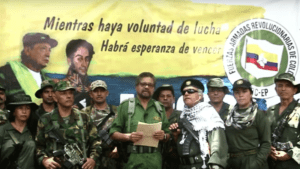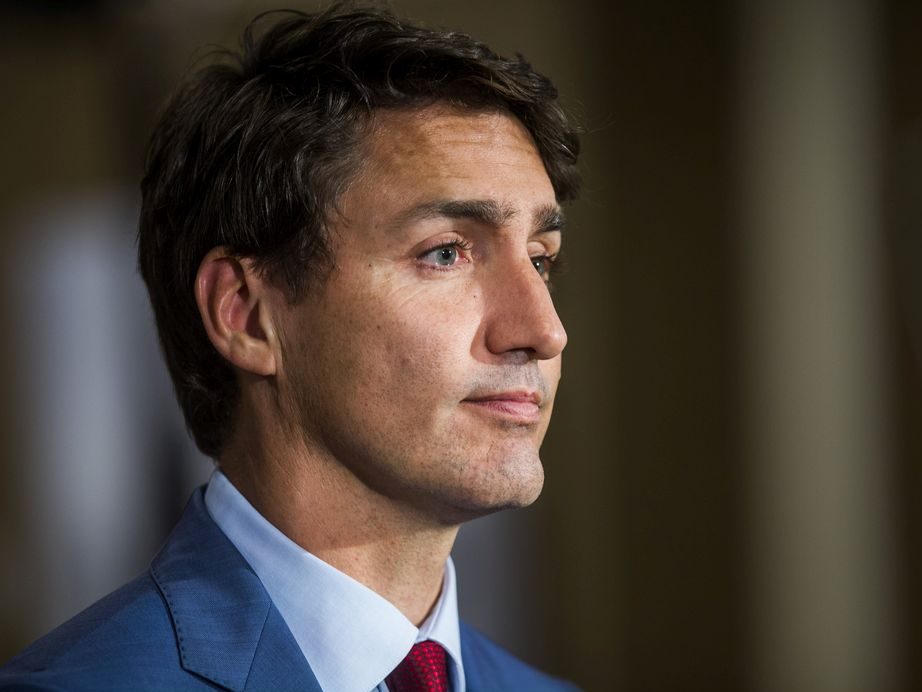August 26, 2016. A peace treaty between the FARC (Revolutionary Armed Forces of Colombia) and the Colombian government was reached after 4 years of intense negotiation, concluding the decades of political turmoil in the country. Euphoria was spread all across the Colombian territory, finally putting an end to extreme violence. This was rather ephemeral as the FARC recently resurfaced after the Peace Agreement was reached, leading to concerns amongst the general public. Paula Molina, a second-year Communication and Digital Media student, having lived her entire life in Colombia, shares her view on the FARC and what the current political climate means for Colombians.
The FARC formed itself as a guerrilla group in 1964 under the aim of representing the underrepresented rural poor of Columbia. In Paula’s words, “It started out as an organization of people focused on those living in rural areas and in areas of low income. At the time, Columbia only had two political parties; the Conservatives and the Liberals. This group of people [the FARC] felt that they were not being represented and were not being heard.”
Up to then, one would find their ideology of representing the lost voices of their people quite empowering, yet, violence was the way they chose to be heard. Instead of being a philanthropic organization, they had transformed into an armed, terrorist group. In order to finance themselves, they became involved in kidnappings and drug-dealing, and “as of the years of 2014 and 2015, their initial ideology of empowering their people vanished as they were caught up in the war with the government.”
It was curious to hear Paula’s opinions on the violent means by which FARC was formed, “[I am] completely against [their actions]. I would obviously address them as an armed terrorist group that brought a lot of pain, death, and insecurity upon our country. There are other ways to be heard. Violence was most definitely not the way to do it.”
With that being said, there is nothing wrong with the initial motive behind the formation of FARC or the idea of a group of people joining to be the voice of the people. However, the approach should have been different“I think FARC as a political party is now doing things they should have done from the beginning, which is trying to speak within the system that they are trying to change. As long as they follow the agreements and stay within the legal grounds of society, then I agree with whatever they are trying to do. I do not agree with their ideologies as I would describe them as kind of communistic. However, I do agree with their right to having a say and having an opinion.”
“Their reformation is a very positive step. I would much rather have them doing politics than kidnapping and killing, and all the other things they have been doing for the past 50 years. But I do feel uneasy regarding them using the same name for their political party because it is a name that brought so much pain and suffering to many people in our country.”
From what it appears, Paula attempts to find a compromise for FARC and their presence in the political sphere, when that has been proven to be particularly risky for the general stability as they would possess such a powerful position in the system.

It is a dilemma that has troubled most Colombians and it is important that even though they are taking sides, they do empathize with the people that hold opinions different to their own, “I was personally part of the people who were in favor of the peace treaty. However, I do understand why most of my friends and family were against it. It has been an ongoing civil war for 52 years, and the government has tried to negotiate with the FARC too many times, leading to no agreement. Negotiation is a compromise from both sides. Even though I believe that these people did the most awful human crimes and thus should be punished, I, of course, understand that they will not agree to any negotiation if they are to be punished. And so, I understand that in order to have peace we must make compromises and let go of some things we believed should have been done.”
It is important for Colombians, especially those that are not directly affected by the war, to acknowledge their privilege and try building their opinions while keeping that fact in mind: “I have spoken to a lot of people who were directly affected by this conflict, which I feel is necessary because of the social strata I am in – we were not directly affected, we did not live the war. I have personally never seen anyone being killed, or anyone I know being kidnapped or killed, but I have talked to others from lower-income families who have seen the war, and whose nephew has been kidnapped and taken to war, and whose relatives have been killed in a war against FARC. These are the people who want the war to end. Generals in the army who have had their soldiers killed in front of them are willing to agree to this peace treaty if it means stopping the war. If people who have seen the war first-hand are willing to agree to the negotiation just for the war to end, then why shouldn’t I, who lives comfortably, agree and think the same?”
On August 29th, A small fraction of FARC leaders announced a return to armed activity, claiming that the Colombian government did not respect peace agreements. The Colombian government responded with offensive strikes, killing FARC members destined to lead rearmament activities. “Frankly, I have not yet formed a full opinion on the matter. I believe a country like Colombia, and many other countries of the world just like it, using violence to solve many issues, must learn to utilize other means to solve conflict and disagreements. Violence must only be used as a last resort. These people are saying that the government is not respecting the peace treaty, meanwhile they are the ones who have been caught dealing drugs after the agreement, the ones caught in all the previous bad acts, and the ones that had to give in all the information they know regarding the drug dealing activities and the dealers, even though the agreement explicitly states that they were supposed to give up all their weapons. They had to completely stop all this, but they were caught right in the action. It is clear that they are the ones who have disregarded the agreements, and the ones who broke off the agreements by going back to be an armed group against the government.”
It has been an ongoing war for around 52 years. Neither the government nor the FARC, have reached a long-term agreement, making it quite problematic for Colombians to form a final opinion on the matter or point fingers at who is more to blame in this situation. As Paula concludes, “When you have tried to do everything to come to an agreement with these people, to give them what they want, it is no longer viable to try to negotiate with them and have a dialogue. The agreement has been signed, everything was for them, they were not going to be punished, they were given a place in the government, and yet all that was for nothing. I do not know if killing them is the right choice, but a stronger stance has to be adopted. They have to be captured and put in jail, and if that is not an option and the government sees them as a danger and killing them is the only solution, then I suppose, that sometimes, that has to happen.”






